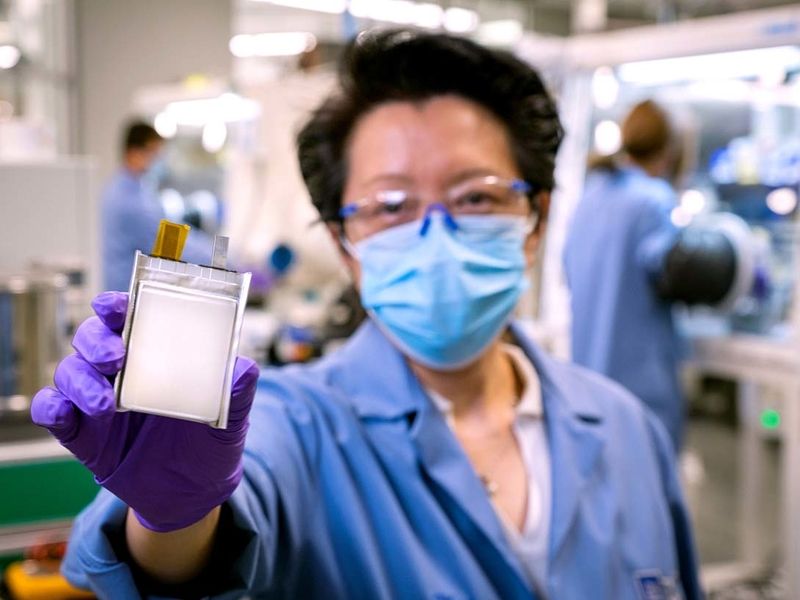
General Motors has agreed to jointly develop its next-generation lithium-metal battery with SolidEnergy Systems. The lithium-metal chemistry could more than halve battery costs and double energy density compared with the current battery packs that power the Chevrolet Bolt, the automaker said Thursday.
The next-generation Ultium chemistry “can change the whole calculus of adoption and accessibility and having people have electric vehicles as their primary vehicle in terms of range, cost,” GM President Mark Reuss said at a Washington Post Live virtual conference. “It’s a breakthrough that we’re very excited about.”
GM has said it plans to have 30 EVs globally and invest $27 billion in electric and autonomous vehicle development through 2025. It aims for an all-electric light-vehicle portfolio by 2035.
Boosting range and decreasing battery costs have been some of automakers’ key initiatives to increasing EV adoption. Last year, when GM announced its proprietary Ultium battery, engineers said they planned to experiment with less expensive and more widely available materials to continue driving the cost down.
As batteries industrywide transitioned from nickel-cadmium to nickel-metal-hydride to nickel-ion, each new chemistry doubled energy density, said Sam Abuelsamid, principle analyst at Guidehouse Insights.
If GM can mass-produce the lithium-metal batteries, “this would be the next step-change,” he said.
GM and SES plan to build a manufacturing prototyping line in Woburn, Mass., for a pre-production battery by 2023.
The battery protoypes have completed 150,000 simulated test miles at GM’s Tech Center in Warren, Mich.
The chemistry could stretch driving range to 500 to 600 miles, up from the maximum of 450 miles on the first-generation Ultium battery, Reuss said.
QuantumScape, which works with Volkswagen, and other major battery manufacturers are also trying to make lithium-metal batteries viable, Abuelsamid said.
Compared with GM’s first-generation Ultium battery, which will power the GMC Hummer and Cadillac Lyriq, and its current lithium ion battery on the Bolt, a lithium-metal version should be less expensive, “but it depends on the ability to mass-produce them,” Abuelsamid said. “If yields are low, it could end up being more expensive if you can’t produce as many cells per hour.”

